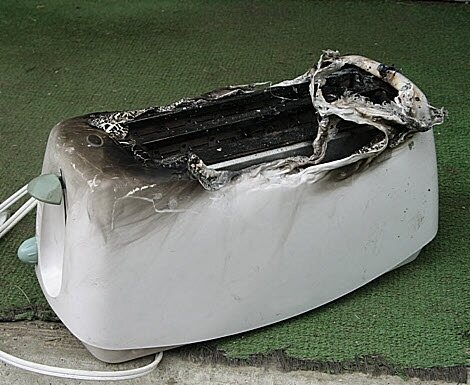Why Does my Circuit Breaker Keep Tripping?
Sometimes, a homeowner will move into a beautiful older home, and suddenly the circuit breakers trip repeatedly. With absolutely no knowledge about electric systems, particularly about breaker boxes and what they do, the homeowner gets a crash course in electrical systems and how they work.
So here is the list of the top five things that will trip circuit breakers and how to end them.
Circuit Overload
This is the most common circuit breaker problem in any house, specifically in the kitchen. Circuit overload happens when there are too many appliances running through a circuit. If 20 amps of appliances are running through a circuit that was designed to take about 15, it’s going to overheat the wires and trip the circuit before damage can be done to the system, the appliance, or the person using it.
A Bad Breaker
Not every issue with a breaker box is a user error; sometimes the breaker box just gets old and begins to degenerate. Circuit breaker boxes will last a lot longer than fuses and fuse boxes will, but they’re still dealing with excessive amps, and eventually, a breaker can just break down and stop functioning as it should. These should be replaced.
Adding dedicated circuits for electrical heavy hitters like the microwave oven, range, and refrigerator will not only bring the house up to code and will stop the circuit breakers from tripping.
Overheating Appliances
This is usually caused by a high heat appliance such as a toaster. In fact, toasters can be a big problem. When the frozen waffles go in, something in the toasters wiring goes wrong, and it begins to draw more amps than a toaster should. It often draws so many amps that it can overload the circuit and trip it. It will probably shut the toaster down before it can set anything on fire, but maybe not before it burns the waffles to a crisp.
The only way to fix this problem by buying a different toaster and putting the old one in the recycle bin. Do not donate it to charity! It’s not worth trying to fix it, especially as it probably has melted parts. Another problem appliance is the electric blanket. After ten years, throw it away, even if it hasn’t been used often.
A Short Circuit
A short circuit occurs when a hot wire touches another hot wire or most often, the neutral wire. This usually happens because the wire is damaged. This can happen in a variety of ways, either by shutting it in a door or drawer too many times, kinking it, being gnawed by vermin or the family dog, ripping it out of the wall by the cord, or accidentally sucking it up into a vacuum.
An obvious way to determine if it’s a short circuit is the sparks it will throw off when you plug in and try to use an appliance: it will flip the breaker instantly. It will also leave a scorched black spot on the outlet and a lingering burning smell in the air.
Ground Fault
This is close to the same as a short circuit, except it touches the copper ground wire in grounded appliances. This won’t spark as badly as the short circuit will, but it will still trip the breaker. When this happens the appliance may need to be replaced and the outlet checked by an electrician.
If your home has any of the above issues, or if you smell and electrical ozone odor in your home, give us a call! Electrical problems can be a hazard, and we can help diagnose and repair any electrical problem in your home.
If you need a highly-reviewed, licensed electrician in the Phoenix Valley area, call Efficient Electric at 623-810-9905. We would love to hear from you!


